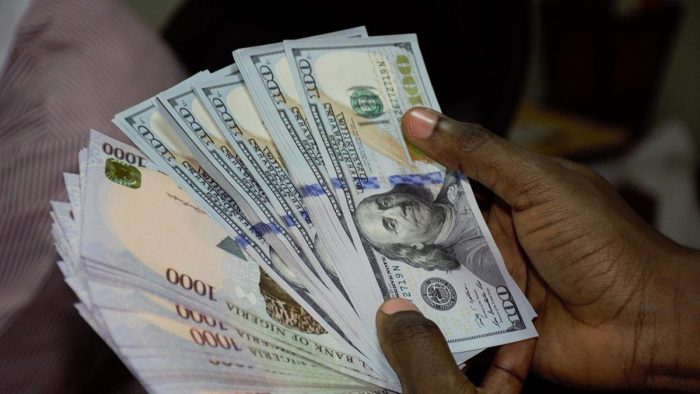Nigeria’s external reserves grew by $7.7 billion to $40.3 billion in 11 months to November 2024 on the back of inflows from portfolio investors who tapped the country’s elevated interest rate environment.
The steady rise in net reserves can be attributed to the hawkish monetary policy stance of the Central Bank of Nigeria (CBN), which has seen foreign portfolio inflows surge on the back of the interest rate hikes.
“The nation’s gross official reserves trend has largely been upward since April 2024,” analysts at Lagos-based FBNQuest Capital Research said in a research note on Tuesday.
Read also: Dollar crashes to N1,608 at official market after CBN’s new FX framework
“This trend mostly reflects the recovery of foreign portfolio inflows (FPIs) resulting from the elevated interest rate environment due to the CBN’s hawkish monetary policy stance,” the analysts explained.
Olayemi Cardoso, CBN governor, said one of the reasons why the bank is raising the benchmark interest rates, which now stands at 27.5 percent, is not only to rein in inflation and shore up the battered naira but to also attract portfolio investors.
The apex bank has raised the rates by a combined 875 basis points this year, up from 18.75 percent last year, pursuing its mandate of price stability and control. However, even with the jumbo rates, prices remain elevated and the naira is yet to budge.
A high interest rate environment presents opportunities for portfolio investors who bring in their dollars but it, in turn, boosts the country’s reserves.
According to data obtained from FMDQ, inflows through FPIs into the economy increased by 40 percent on a month-on-month basis to over $1.6 billion in November.
Meanwhile, capital inflows from foreign direct investment (FDIs) remained subdued, primarily due to the challenging macroeconomic environment. For instance, FDI inflows were flat m/m at $241 million in the reference period.
Samson Simon, CEO/chief economist at ARKK Economics and Data Limited, noted that the rising interest rates will lure in portfolio investors but they would remain cautious and may exit anytime should they find reasons to do so.
“While FPI means something and would definitely help with Nigeria’s FX illiquidity, it is too fickle to be counted on. And when it is experiencing a downtick, it does not augur well,” Simon said.
Analysts at FBNQuest are however optimistic that the country’s external reserves will continue to rise as capital inflows flock the Nigerian market.
“We anticipate a steady rise in Nigeria’s gross official reserves in the near term, driven by improved capital inflows, as FPIs take advantage of carry trade opportunities due to the elevated interest rates,” they said.
Read also: Naira gains N114.45 as dollar crashes further after CBN’s new FX framework
Foreign portfolio impact
Foreign portfolio investments in Nigerian equities reached $284 million in the first nine months of 2024, its highest level post-COVID. This marked a 19 percent year-on-year appreciation from the $239.2 million recorded in the corresponding period in 2023.
This is according to the Capital Importation data for the third quarter (Q3) of 2024 provided by the National Bureau of Statistics (NBS).
This represents the highest level of interest in Nigerian equities since the first nine months (9M) of 2020 when foreign portfolio investment (FPI) in the market reached approximately $737 million. Comparatively, FPI stood at $168.5 million in 9M 2021, declined to $51.7 million in 9M 2022, and rebounded to $239.2 million in 9M 2023. With an FPI of $84.7 million in Q3 2024, it also represents the highest foreign investment in Nigerian equities in Q3 of the year since 2019.
In 2024, Nigeria’s economy is increasingly exhibiting characteristics of a ‘hot money’ hub, with foreign portfolio investments accounting for approximately 61 percent of the country’s total capital importation in the first nine months of the year. Short-term money market instruments account for $3.43 billion of the $4.38 billion in foreign portfolio investments recorded in the first nine months of 2024.
This year, the NGX has provided a year-to-date return of 31.34 percent, underperforming the country’s inflation rate and 2023’s returns. Despite Nigeria experiencing its highest inflation since 1996 and benchmark interest rates surging to a record 27.5 percent, the increased foreign interest in Nigerian equities can be attributed to significant improvements in the country’s foreign exchange system.
Read also: Finance and insurance sector grow economy by 30.83% on CBN rate hike
Unlike in previous years, the current foreign exchange system offers greater fluidity, enabling investors to seamlessly invest in Nigerian stocks and repatriate their dollars returns without the need for lobbying.
Join BusinessDay whatsapp Channel, to stay up to date
Open In Whatsapp





